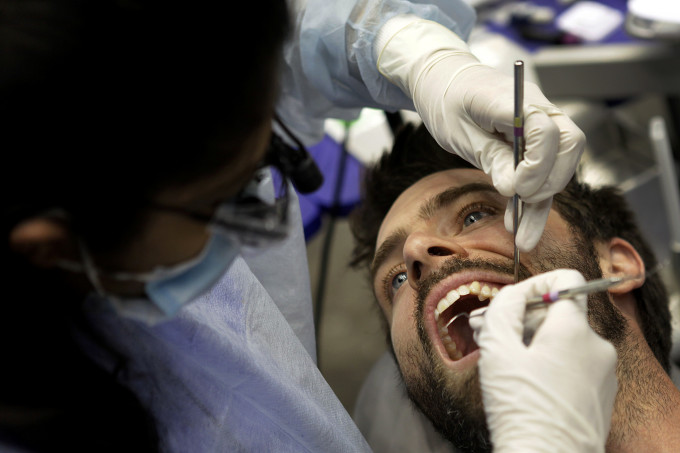These days, everyone is moving towards eating a balanced diet and squeezing in a healthy workout. But to truly be healthy, you have to focus on more than just diet and exercise. Many people often overlook their oral health.
Oral health and cardiovascular health have been linked in the health community for a while; however, there is new evidence that provides the link between periodontitis, also known as gum disease, to stroke and heart attacks. Studies have shown that treating gum disease with a topical remedy greatly reduced vascular inflammation, which lessens risk of hypertension, heart attack, and stroke.
Cardiovascular disease is a serious problem, in the US: one of four people will die due to these complications if left untreated. It is also a huge expense for Americans, including employees and employers who sponsor their health plans. Heart disease is racking up a daily one billion dollars in lost productivity and medical care.
Gum disease can also affect more than just heart. It is actually a risk for expectant mothers, as it can affect unborn babies. The bacteria caused by the periodontitis get into the bloodstream of the pregnant woman and attack the fetus, often leading to premature birth and low birth weight. This puts newborns at risk for issues in their early life, as well as developmental issues later on, in addition to being very expensive for the family. A premature baby can cost around $49,000 in expense its first year, compared to $4,551 for an infant who has no complications. A report from the March of Dimes states the pre-term birth costs more that $12 billion in extra healthcare costs.
Oral health is also important for diabetics. In addition to being at risk for issues with their feet, eyes, kidneys, and heart, they also are more prone to periodontitis. A higher risk of gum disease can make it more difficult to regulate blood glucose, in addition to causing infections in the bones that hold teeth in place, making chewing more difficult.
It is vital for employers and employees to understand how oral health plays a part in overall health. Simple, inexpensive treatment can save businesses and plan participants thousands of dollars and countless hours of pain.
Analyzing claims data is a great indication of how oral health affects employees. The highest number of claims come from cardiovascular, maternity, diabetes, and musculoskeletal claims, all of which can be worsened by periodontitis.
Dental health has been given a back seat in health plans, wellness initiatives, and employee education. Most initiatives focused on preventing heart disease covered diet and exercise, but overlooked dental care. Many health plans do not include dental coverage, which is a minimal expense compared to other program costs and costs of potential complications. Often, employees will disregard dental care because they have never had a history of cavities. But dental coverage and employee education can help them understand the risks and therefore take their dental health into their own hands.
It is highly important that employers work closely with insurance brokers to understand dental coverage and what the associated costs are. They will likely see that medical claims are much higher than dental claims. They can work together with benefit consultants to create affordable dental plans. Bridging the gap between dental and medical coverage for those at higher risk of dental issues can truly get the treatment they need.
Employees with good dental hygiene will decrease employer’s medical costs. Proper dental coverage is vital for this win-win.
Highest regards,
Stacia
Source
[USM_plus_form]
